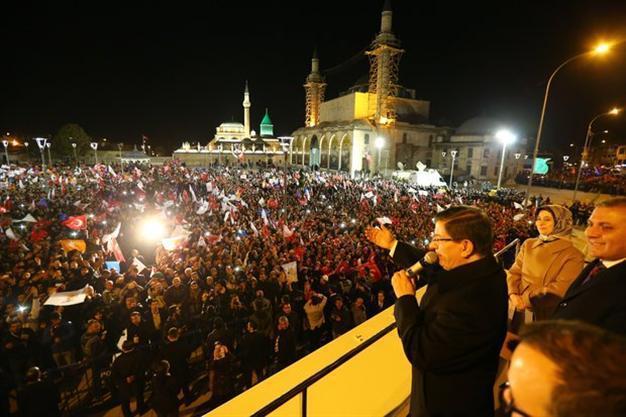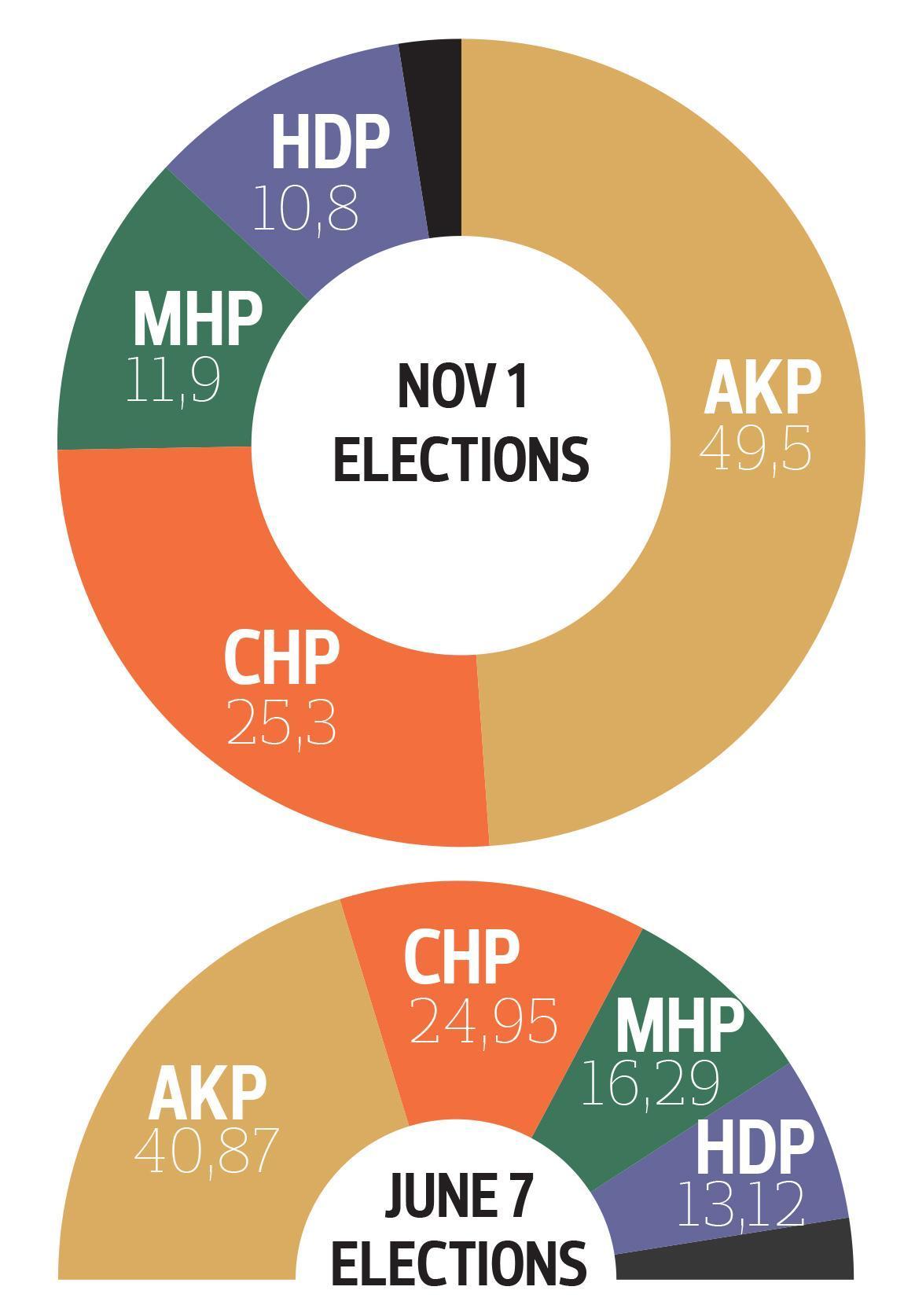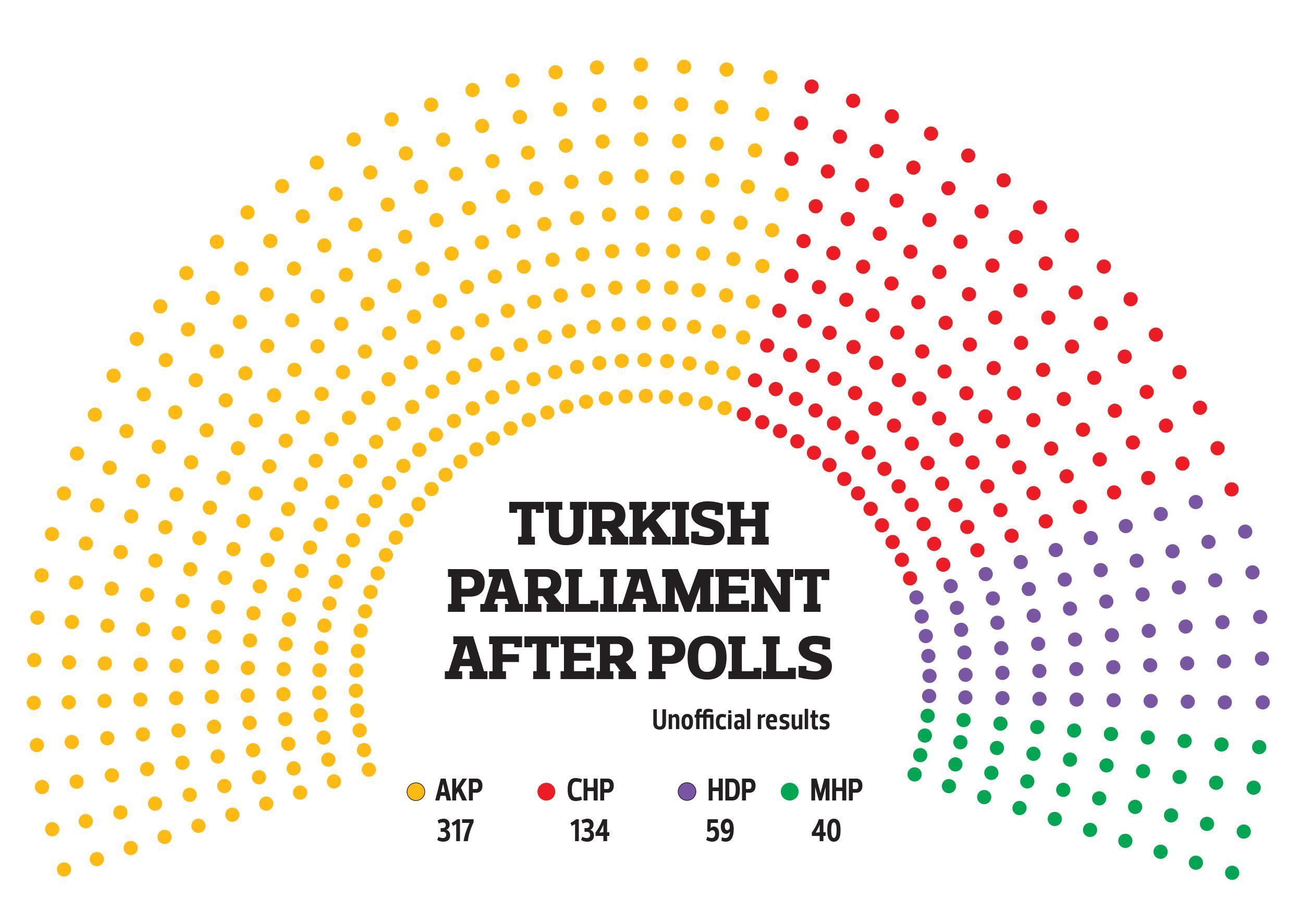Turkey's AKP makes strong comeback, wins enough seats for single-party rule
ANKARA

AA photo
With a remarkable boost in just five months since the June 7 election, the Justice and Development Party (AKP) won the Nov. 1 snap election with a landslide victory, securing a decisive majority at parliament.The seats in the national assembly will still be occupied by four parties, but the AKP has seen a sharp rise in its share, raising the chances of it making a constitutional amendment that would pave the way for a transition to a presidential system in line with the ambitions of its founding leader, President Recep Tayyip Erdoğan.
The AKP secured around 49.5 percent of the vote, giving it 317 seats in the 550-member parliament, according to results with almost all ballots counted. For a constitutional change at parliament in favor of the presidential system in line with Erdoğan’s aspirations, the AKP needed to win 367 seats, though 330 seats would be enough to take the issue to a referendum.

The main opposition Republican People’s Party (CHP) encountered a considerable disappointment, as it only managed to slightly improve on its June 7 performance, getting around 25.3 percent.
Both the Nationalist Movement Party (MHP) and the Kurdish problem-focused Peoples’ Democratic Party (HDP) lost a considerable number of votes. The HDP, which got 13.2 percent of the votes in June, again managed to cross the 10 percent election threshold to get representation in parliament, but only by a narrow margin.
The MHP’s loss was even sharper, dropping to around 12 percent from 16 percent in June, apparently losing a sizable chunk of support to the AKP.

The results of the vote, which also tested the leadership of Prime Minister and AKP head Ahmet Davutoğlu, came as a surprise to most people. The election had been expected to produce a knife-edge result that would require the formation of a coalition government, but enough voters discounted widespread concerns over democracy and freedom in Turkey in favor of stability to bring the AKP back to single-party government.
In the months since June 7, conflict between the security forces and the outlawed Kurdistan Workers’ Party (PKK) was renewed and Turkey has witnessed major attacks staged by jihadists from the Islamic State of Iraq and the Levant (ISIL). The Turkish Lira, meanwhile, has dramatically lost value against the U.S. dollar and the euro.
Turkey has been ruled by the AKP’s interim government since the June 7 polls, following single-party rule since November 2002 held by the AKP.
Founded in August 2001, the AKP won three consecutive parliamentary elections in 2002, 2007 and 2011 and was able to form a single-party government after each election.
However, in the June 7, 2015 election, the AKP dropped to fewer than 276 seats in parliament, the number needed for a legislative majority. It had aimed for the 330 seats it needed in order to change the constitution without input from other parties and thus pave the way for a new presidential system equipped with more power and fewer checks and balances.
After failing to secure a coalition, Davutoğlu formed an interim cabinet ahead of the November re-run.
In the run-up to the June 7 parliamentary election, Erdoğan held a series of large public rallies during which he made little secret of his preference for single-party rule by the AKP despite constitutional clauses which required him to be impartial. Opponents have argued that he wanted another election to enable the AKP to win a large enough majority to change the constitution and grant Erdoğan sweeping powers as an executive president.
The June 7 elections were the first ever parliamentary elections that the AKP entered without Erdoğan’s leadership, instead led by Davutoğlu, who was elected as party leader in August 2014 after Erdoğan became president in a popular vote. At this year’s party congress, Davutoğlu was reelected as party leader.
Eyes will now turn to the conduct of the executive body and the balance of power between Prime Minister Davutoğlu and President Erdoğan.
















